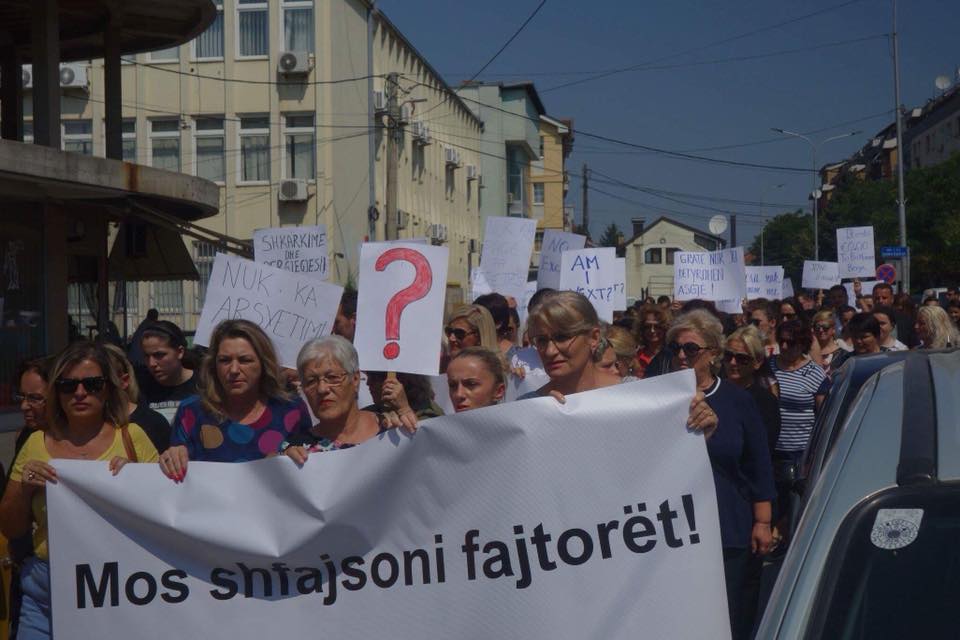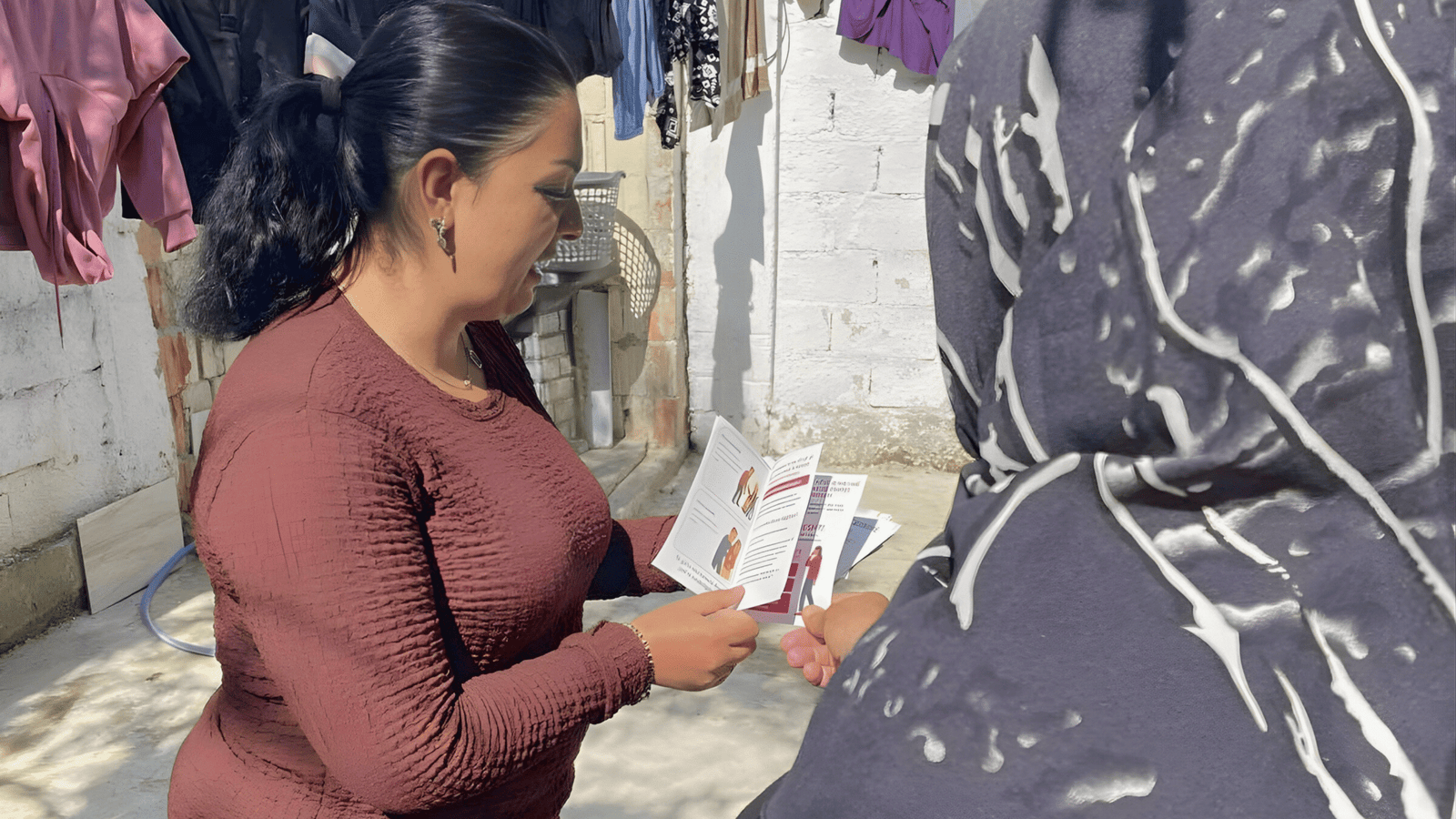As of 14 Jan. 2019, domestic violence and sexual harassment are criminal acts in Kosovo, punishable in accordance with the recently amended Criminal Code of the Republic of Kosovo.
The lengthy process of amending the Criminal Code began in Sep. 2017. At that time, the Kosovo Women’s Network (KWN) cooperated with other members of the Security and Gender Group (SGG) to draft legal recommendations for including sexual harassment and domestic violence in the Criminal Code. KWN researched and prepared this legal justification in accordance with the Council of Europe Convention on preventing and combating violence against women and domestic violence, known as the “Istanbul Convention”, as well as based on best practices in the region and Europe.
According to police statistics, domestic violence has been among the most common crimes perpetrated in Kosovo in the last decade. In 2018, more than 1,125 domestic violence cases were reported to police. Moreover, a 2015 KWN study showed that more than 62% of Kosovars have suffered some form of domestic violence in their lifetimes. Only in the last three years (2015-2017), 49 women lost their lives due to violence perpetrated against them by family members. However, there have been very few convictions for such crimes, court data suggests. According to KWN monitoring, this has been due in part to the fact that the Criminal Code did not define domestic violence as a criminal offence. As a result, courts often treated crimes perpetrated within domestic relationships only in civil proceedings, even when a criminal offence was committed and should have been prosecuted automatically (ex officio). The release of perpetrators without prosecution has contributed to recidivist violence against women, even death.
Meanwhile, KWN’s research on “Sexual Harassment in Kosovo” found that an estimated 49% of Kosovars have experienced some form of sexual harassment in their lifetimes and 45% did in 2014 alone. Women (64%) are significantly more likely to have been sexually harassed than men (33%). Yet, only 4% of persons who had suffered sexual harassment ever reported it to authorities. Moreover, the research found that representatives of relevant institutions tend to lack knowledge about sexual harassment, its definition, the relevant legal framework and appropriate procedures for addressing it. They tend to misunderstand sexual harassment as rape or sexual assault, while “less severe” forms were either unknown or dismissed as “unimportant”.
These worrisome findings led KWN to instigate advocacy towards amending the Criminal Code, so that it would clearly define both domestic violence and sexual harassment as criminal acts, thereby enabling improved access to justice for persons who have suffered such acts, particularly women.
When KWN faced initial resistance from the Ministry of Justice working group, KWN strengthened its collaboration with an advocacy coalition comprised of experts from SGG, including the Office of the National Coordinator on Protection from Domestic Violence, UN Women and the Kosovar Gender Studies Centre. Together, they reviewed the recommendations and compiled a joint recommendation, which also received support from the European Union Rule of Law Mission in Kosovo (EULEX).
Together, they argued that in accordance with the United Nations Convention on the Elimination of All Forms of Discrimination against Women (CEDAW), within Kosovo’s Constitution, the state has a duty to protect women in both public and private spheres. Including domestic violence and sexual harassment as criminal acts would improve such protection, they said. Additionally, the proposed amendments would contribute directly to implementing the Kosovo Strategy and Action Plan on Protection from Domestic Violence 2016-2020 by “specifying domestic violence as criminal act in the Criminal Code of Kosovo in accordance with the definition of domestic violence from the Law on Protection from Domestic Violence”. The proposed amendments also sought to address a recommendation made by the European Commission in the Kosovo 2018 Report.
Throughout 2017 and 2018, KWN used these arguments in several working group meetings, tirelessly advocating for its recommendations. This included several Assembly of Kosovo working group meetings. On Jun. 14, KWN wrote an official letter to all parliamentarians, strongly encouraging them to ensure that the specific definition of domestic violence provided by KWN and other key actors in line with the Istanbul Convention, would be adopted: “We call upon all parliamentarians to ensure that our proposed amendments are included, as originally proposed, in the amended [Criminal Code] and to vote in favor of these crucial amendments,” the KWN letter stated.
In Nov. 2018, the Assembly adopted the amended Criminal Code, including new definitions of Domestic Violence and Sexual Harassment as criminal offences. The Code has recently entered into force.
“This was a very long and important process that involved all of the main stakeholders,” said Adelina Berisha, KWN Advocacy Coordinator. “Including these two provisions in the Criminal Code will help institutions better fight violence against women,” she said. “One of our main aims in this process was to ensure that perpetrators will be punished for the crimes that they commit, which has not happened to date.”
KWN’s monitoring of access to justice, research reports that informed its recommendations for the Criminal Code and time spent advocating were supported by the Austrian Development Agency and the Kvinna till Kvinna Foundation.







